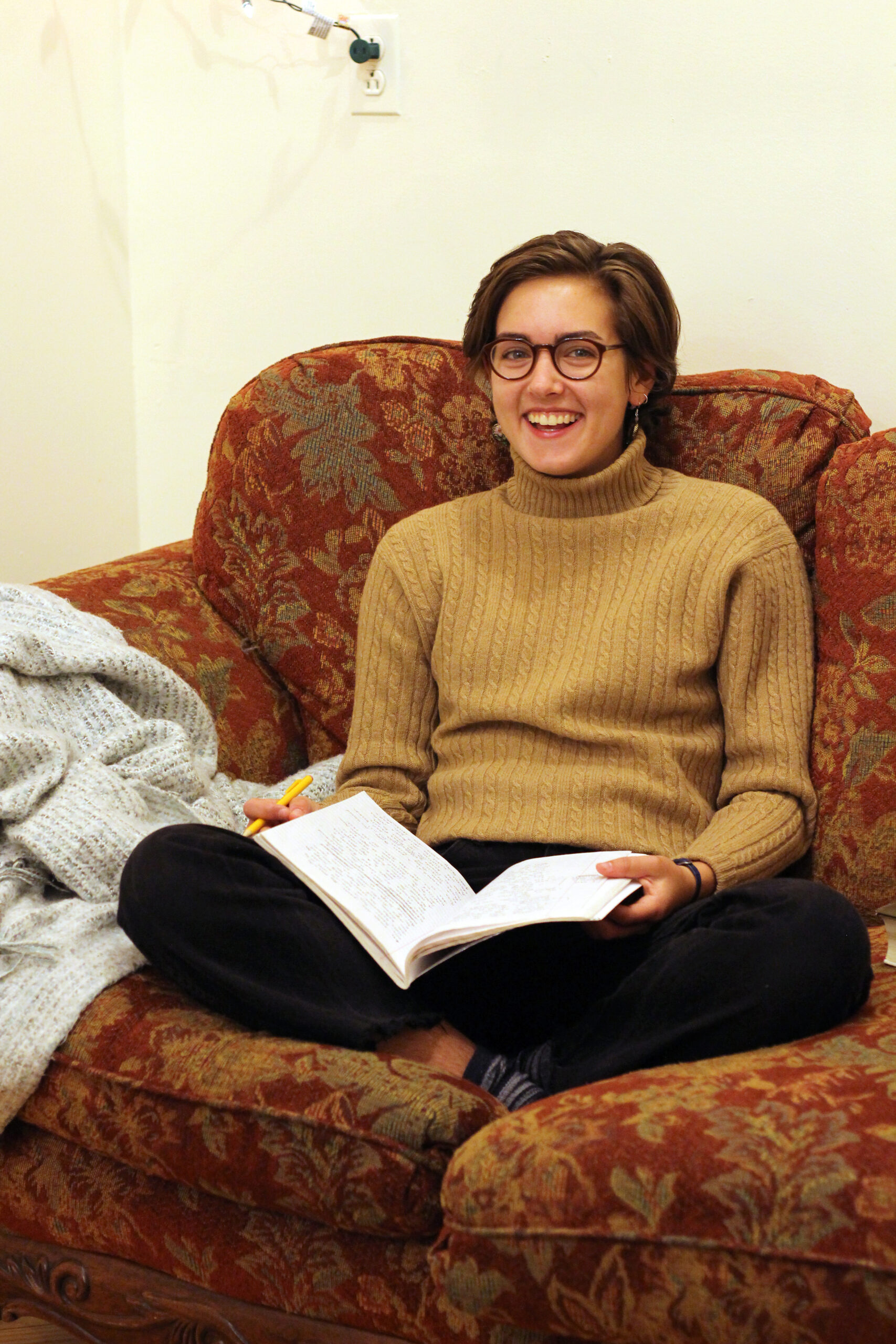Portrait of an artist: Carly Berlin ’18 on writing
November 3, 2017
 Jenny Ibsen
Jenny IbsenKodie Garza: What is the most meaningful piece you’ve written and why?
Carly Berlin: Oh, that’s hard. I think the piece that I wrote this past summer was meaningful in a lot of ways. This summer I was mostly only working on this story about Clarkson, GA, which is a resettlement area for refugees for the past three decades. The editor of the Bitter Southerner had this idea to interview a refugee a week for a year, and then just kind of gather that material and see what came of it. It was really hard at times to get ahold of people and just to sit down in front of someone who has spent much of their life in a refugee camp or surviving persecution in some way and just ask them to tell me about. I think I did a decent job in kind of both foregrounding the people that I talked to and their own voices and what I eventually wrote but also foregrounding my own kind of questions and qualms with what I was doing. I don’t think I would have been satisfied if I had just had the voices and not kind of my own discomfort on the page. That was really important for me to share in that story.
KG: When did you get into writing for the first time?
CB: I think I have always been into writing. I think if there was a point that I started really thinking of myself as a writer and taking myself more seriously, [it] was probably at the end of high school. At that point, I started getting more involved with my school’s literary magazine and doing more workshops and just producing more work.
KG: How did you first become interested specifically in creative non-fiction?
CB: I think that was a shift that happened at Bowdoin for me. I had an excerpt from that literary magazine in high school that I submitted and got into the advanced [fiction] class without taking the intro, which was super flattering. I got to try my hand at writing more realistic fiction, but also similarly found myself straying more towards nonfiction and trying to translate things that I had experienced into fiction, which was strange. I think I’ve realized since then that I’m more creative than I am imaginative. I think my process of writing, especially now, is kind of taking these pieces of reportage and research and personal experience and kind of melding them into something when the pieces are in front of me. [I’ve realized that] maybe nonfiction is what I want to be focusing on and since then have almost exclusively taken nonfiction classes both here and while I was studying abroad.
KG: What inspires you to write?
CB: I think when I was little I would have said that my goal has always been to tell the stories of people who couldn’t tell their stories themselves. I think that’s important. I also think it’s really important to help teach other people how to tell their own stories. I think teaching and writing in tandem is definitely important to me [because] I think something I’ve come to critique more over time is superseding my voice over the stories that I am writing.
KG: How does your writing relate to your identity?
CB: I think my writing relates, often times very closely, to my identity and my Jewish upbringing and my family’s history, but also having grown up in the South in Atlanta, GA. A lot of my writing kind of grapples with the intersection of those things. A lot of my writing is attempting to grapple with the weirdness and the strangeness of those things and mak[ing] them strange for other people too.
KG: How has your sense of place shifted since coming to Bowdoin?
CB: Oh entirely. I think I had this complete New England fantasy: I just wanted something quaint and quiet, and it just felt like New England is where the smart people go for college. I got here and was like, what am I doing here? I don’t know anyone. I’m so far away from home. So many things here are different. But, I think that being here has allowed me to see home in a really different way, and I don’t think I would be writing about Atlanta or the South or like thinking about that as a part of my identity at all if I was still there. I think that that kind of distance has allowed me to like see this strangeness of the world that I grew up in.
KG: What are your goals as a writer?
CB: I think my goals are to complicate the things that we kind of simplify for ourselves. I think for everything we have these set narratives that we tell ourselves, and I think a large goal of mine, as a writer, is to provide a counter perspective or to just kind of mix things up, I guess. I think if along the way I can change the way that someone somewhere thinks about something, then that feels like a success.
Read “The South’s Ellis Island” at The Bitter Southerner, and “Old Bridge, New Cliques” at Down East Magazine.

Comments
Before submitting a comment, please review our comment policy. Some key points from the policy: